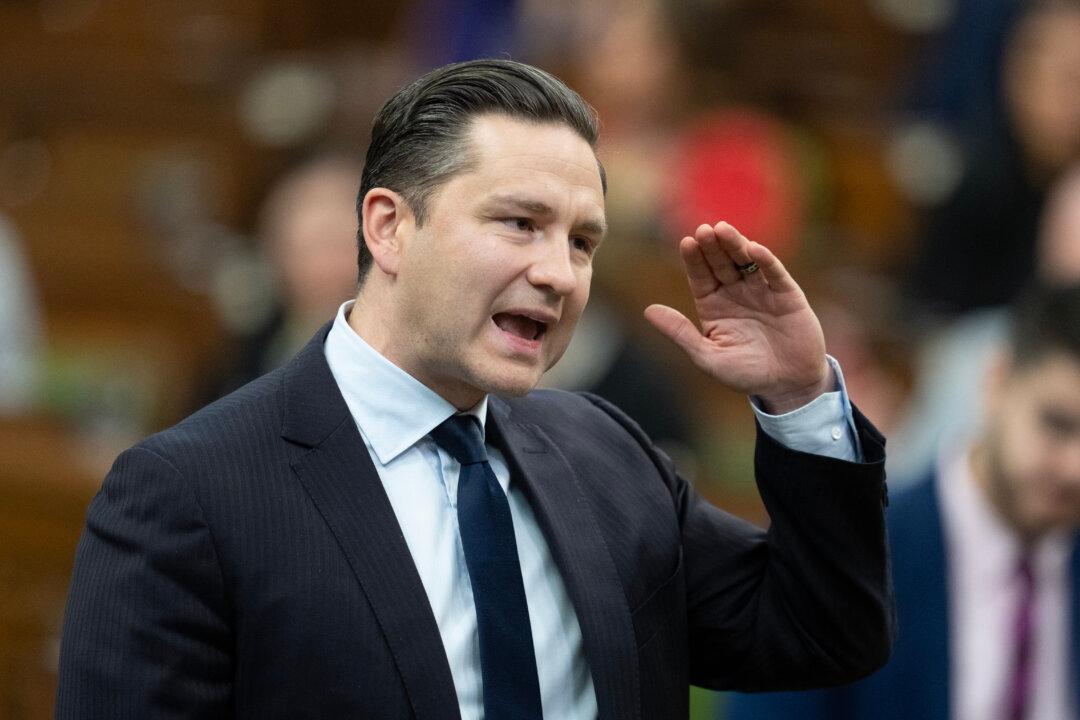Conservative Leader Pierre Poilievre has pledged to implement tariffs on Chinese exports like electric vehicles, steel, aluminum semiconductors in order to protect Canadian workers against “economic predation” by Beijing.
“We want this to be the best place in the world to invest in a new steel mill, dig a new mine, hire another worker,” Poilievre said at a press conference at the Stelco steel plant in Hamilton, Ont., on Aug. 9.





